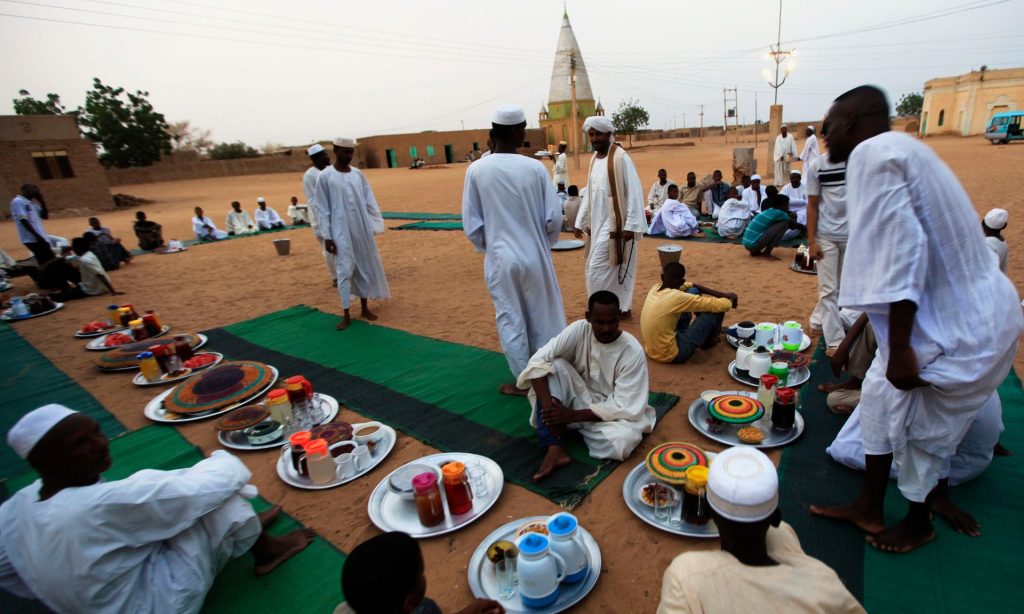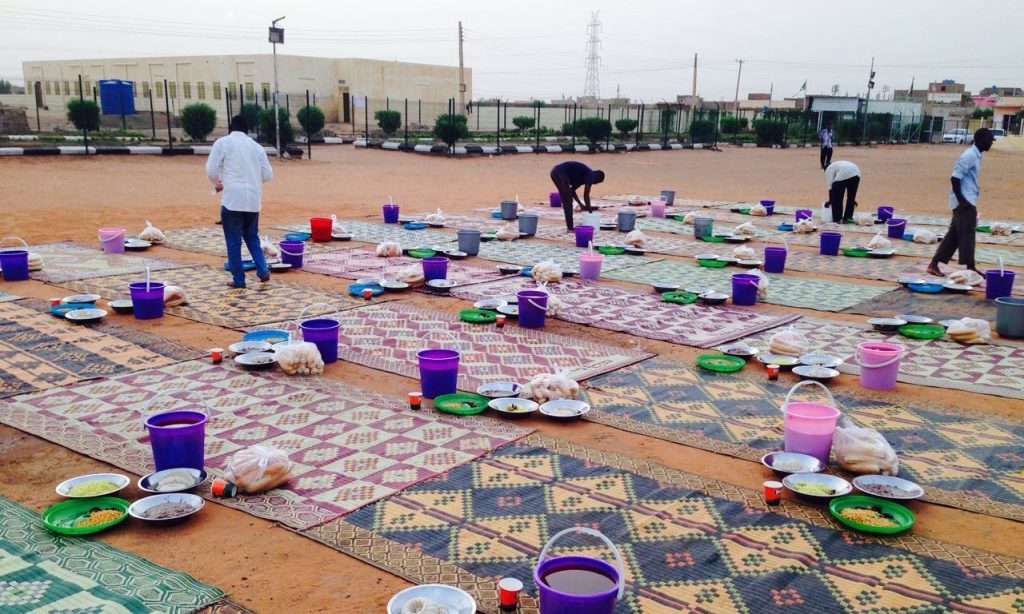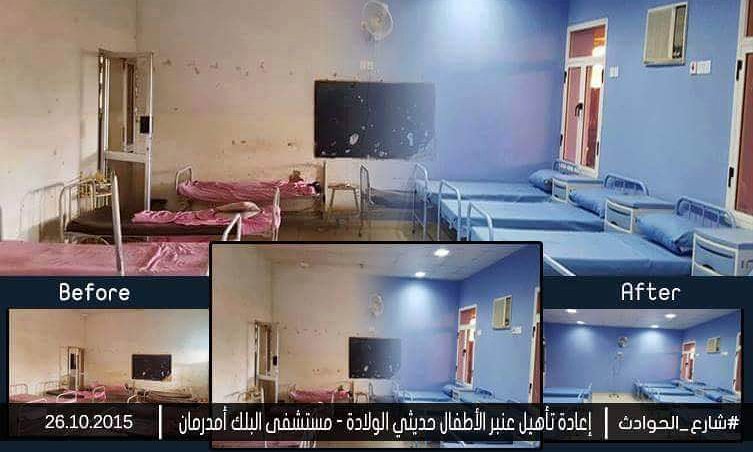
Photograph: Mohamed Nureldin Abdallah/Reuters
In an abandoned school in Khartoum, men and women rush around in the sweltering sun gathering dried onion, lentils, tomato paste, dates, salt and cooking oil into thousands of bundles to distribute to families in need.
This flurry of activity usually starts a week before Ramadan, the holy month when healthy and able Muslims around the world abstain from food and drink from sunrise to sunset. Hussein Ali, a volunteer working in the 47C heat, says: “We started [years ago] with around 350 Ramadan meal packages; this year we are reaching 10,000.”
As the UN is criticised for its high administrative costs and a crippling bureaucracy of its humanitarian efforts, local initiatives such as the Sadagaat project are filling the gap and combating the stereotype that African countries are always the passive recipients of international aid.
With nearly half of Sudan’s population living below the poverty line and the government hampering the work of foreign NGOs, grassroots initiatives and local NGOs have become more crucial.
“Social media has helped increase the scope of volunteer work in Sudan to an incredible level,” says Ali. “[At Sadagaat] we have a WhatsApp group with 220 people that gives you access to at least 80 or 90 volunteers at any given time.”
Social media has also become a tool for transparency. Donors in the Sudanese diaspora across the world are able to follow projects via online posts. The Sadagaat Facebook page has more than 40,000 followers.

Photograph: Sadagaat
It started in 2001 with a small group of Sudanese professionals who were living in the US, missing home and keen to use a cut of their salaries to help. “The connection of Sudanese people with Sudan is very strong, wherever we are in the world. We started to think collectively of what we can do,” says Anwar Ibrahim, co-founder and chairman of the Sadagaat organisation.
The group banded together to collect money and contribute to small-scale Ramadan aid projects. The cash was sent to trustworthy friends and relatives back home who bought and distributed meal packages, documenting the process and sending updates to the US.
In giving to those in need, the diaspora is following Sudanese traditions of helping other – particularly during weddings, funerals and Ramadan. .
From humble beginnings, the network has snowballed over the past decade. The “circle of trust” approach is an organisational strategy that enabled the delivery of emergency aid projects costing around $2m (£1.3m) in 2015.
A culture of giving
Mutaz Ahmed, the UK representative for Sadagaat, is stewarding £10,000 worth of donations this month. He says that for people like him it’s a way to stay connected with their roots. “We miss our families and feel extra compassionate towards the needy back home,” he says.
Fatma al-Amin, an Edinburgh-based doctor and supporter of Sadagaat, says: “[It] makes me feel good. When the person doesn’t know you and you help them in a small way, you feel like you helped lift a burden and given them a renewed faith that there is goodness in the world.”
Other charity initiatives have followed Sadagaat’s lead, tapping into this deep-rooted culture of giving. Shari’ al-Hawadith has adopted a similar structure, using donations from the Sudanese community to help ensure emergency medical aid for those unable to afford it.
At first, volunteers stationed themselves near critical care units, seeking out patients who required medical assistance. They would then go out to raise funds for them from a wide circle of friends and family.

Photograph: Shari’ al-Hawadith
From a Facebook page with 15 volunteers, Shari’ al-Hawadith has nearly 100,000 followers from all over the world. “Social solidarity is a crucial core value in Sudanese culture and means that we can always rely on those abroad to support the cause,” says Sulafa Saad, media coordinator at the group. Those who donate within Sudan are able to visit the patients they have helped, while those abroad can view photos of the projects online.
For Hatim Ibrahim, a London-based supporter of the charity, this continued link is invaluable. “Even though we have migrated to Europe, we are still Sudanese people who understand and acknowledge how poverty is affecting the health of our new generation, and for this reason we donate.”
